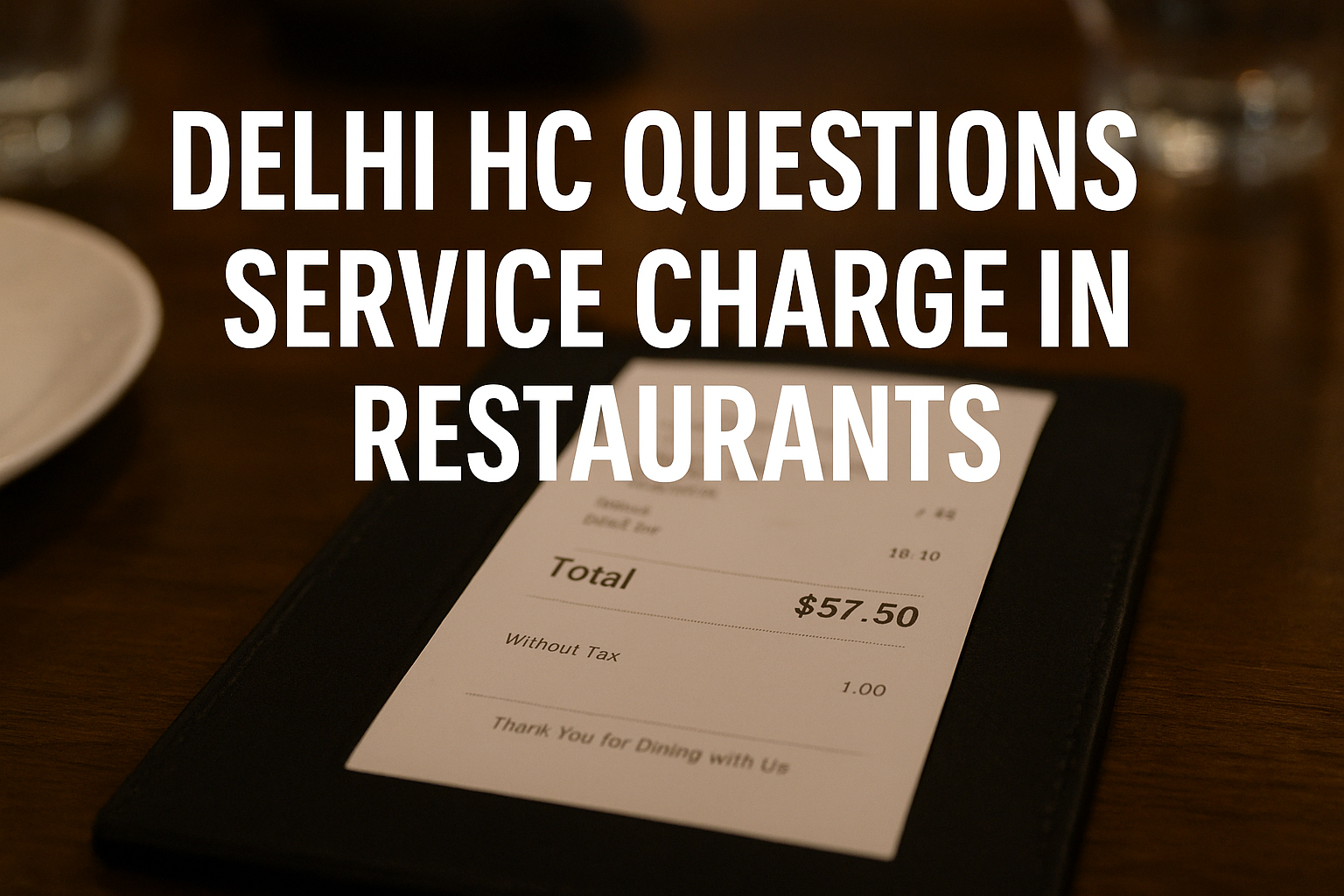New Delhi, August 19 – The Delhi High Court has questioned the continued practice of levying a service charge in restaurants and hotels, especially when customers are already paying higher-than-market prices for food and beverages in the name of the “dining experience.”
A division bench led by Acting Chief Justice Manmohan and Justice Tushar Rao Gedela raised the concern during a hearing on a public interest litigation (PIL) challenging service charge collection by eateries.
Court’s Key Observation
The bench observed that consumers visiting high-end restaurants are often charged more than the maximum retail price (MRP) for products, justified by the “ambience” or “experience.” In such cases, the judges questioned why an additional service charge should be imposed on top of already inflated bills.
“When you are charging higher MRP in the name of experience, then why levy service charge?,” the court asked.
Background of the Case
The PIL, filed by advocate Daniell Raja, challenges restaurants’ right to collect mandatory service charges, arguing that such charges are unfair and misleading for consumers.
In July 2022, the Central Consumer Protection Authority (CCPA) issued guidelines prohibiting restaurants and hotels from levying service charges by default. Instead, it said customers must be given a choice to pay voluntarily.
The restaurant industry, however, represented by the National Restaurant Association of India (NRAI), has been opposing the ban, stating that service charges are a legitimate component of employee wages and are transparently disclosed to customers.
Court Proceedings
During the hearing, the Delhi HC noted that while customers cannot be forced to pay arbitrary add-ons, restaurants are free to set their menu prices as per their costs, overheads, and ambience. But adding a compulsory charge on top of that raises concerns of double billing.
The bench indicated that it will further examine whether service charges violate consumer rights under the Consumer Protection Act, 2019.
Next Hearing
The case will continue with further arguments in the coming weeks. The court has not yet issued a final ruling but has signaled strong scrutiny of the practice.
Why This Matters for Consumers
- For diners: If the court rules against service charges, restaurants may need to revise their billing systems and include all costs in menu prices.
- For restaurants: The outcome could impact employee payouts, as many establishments distribute service charges among staff.
- For policy: The case will set a precedent on the balance between consumer rights and restaurant industry practices.
FAQs
Is service charge in restaurants legal in India?
According to the guidelines issued by the Central Consumer Protection Authority (CCPA) in July 2022, restaurants and hotels are not allowed to levy a mandatory service charge. Customers can only pay it voluntarily if they wish.
Why did the Delhi High Court question service charges?
The Delhi High Court observed that restaurants already charge higher prices compared to the maximum retail price (MRP) of food and beverages, often justifying this as part of the overall experience or ambience. The bench questioned why customers should also be compelled to pay an additional service charge.
Can restaurants increase menu prices instead of charging service charge?
Yes. The court clarified that restaurants are free to decide their menu prices, including the costs of ambience, service, and infrastructure. However, they should not impose a separate compulsory service charge on customers after the bill is calculated.
What happens if a customer refuses to pay service charge?
Under current CCPA guidelines, a customer cannot be forced to pay service charge if they choose not to. In cases of disputes, consumers can register complaints with the National Consumer Helpline (1915) or take action under the Consumer Protection Act, 2019.
What is the status of the Delhi High Court case?
The matter is still being heard in court. While the Delhi HC has raised important questions on the practice, a final ruling has not yet been delivered. The outcome will determine whether restaurants can continue with the current practice of levying service charges.

